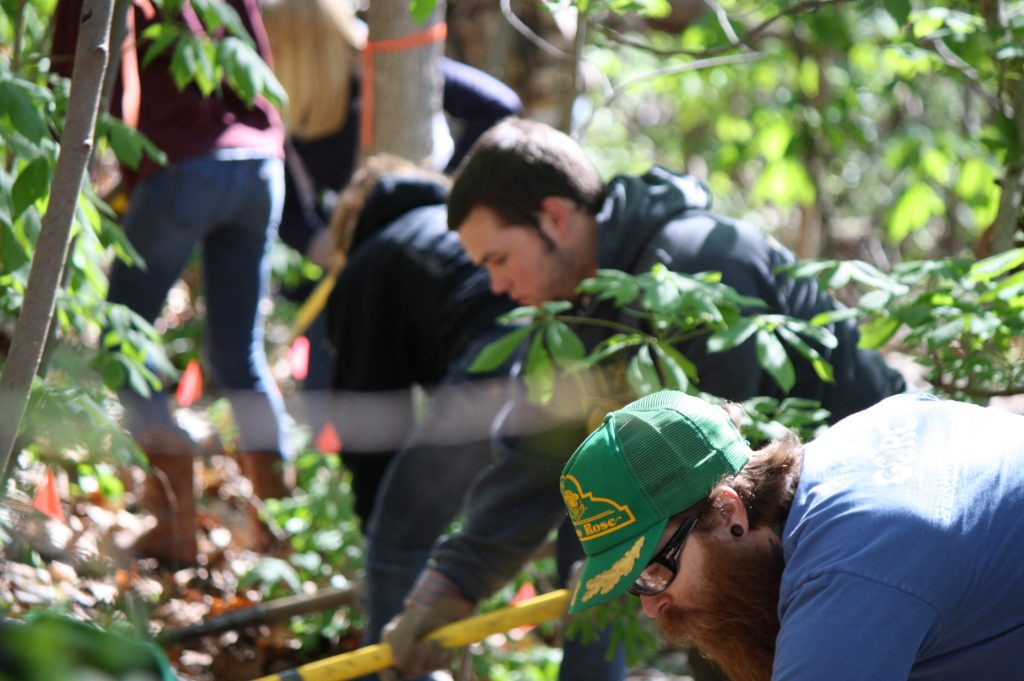Trail stewards are important to both GORC and land managers. They are the eyes and ears of a particular park or trail. Trail stewardship is a term often used but not always defined. Let’s define trail stewardship and the act of being a trail steward.
A trail steward will often exhibit the following characteristics or traits:
- They are avid trail users and enjoy nature.
- They actively show interest in a particular region or park.
- They have a sense of community and wish to volunteer to make their park a better place for all trail users.
- They want to to assist GORC in its future trail building plans.
A trail steward wears many hats and is responsible for a few types of duties related to their park:
- They act as the primary GORC contact with a park’s land manager. This mainly means keeping a consistent dialogue going so GORC is aware of the land manager’s needs or concerns.
- They assess a trail’s needs. This can be minor maintenance, addressing a spot that won’t drain/dry out and requires a reroute, or new trail scouting and building. Many times the steward is involved with project proposals and trail design outings.
- The steward will relay information related to downed trees or other hazards to park staff or other authorized GORC sawyers as reported by other trail users online.
- They propose or request dates concerning the design, building or maintenance requirements of the trail. These dates may consist of volunteers culled from an “open call” on our Facebook page, college/high school students looking for community service hours, Boy Scout Troops (or similar), or a full GORC trail building day. The scheduling is usually addressed through email to the other trail stewards and board members to set up the spring / fall schedules.
- They will be the point of contact for crew leaders and create maps and section points so the volunteers and crew leaders know where to go, what to do, and coordinate post-trailbuilding lunches. Ultimately, they are the “leader” of the park’s trail building event and will task others with helping them run the event or manage it if they cannot be present themselves.
- They coordinate with our trail tool manager or the respective County personnel to make sure they have the correct type and amount of tools for the anticipated turnout at the trail building event.
- They will promote the trail online. At the very least, writing the content to be posted and forwarding the information on to the “Social Media” person to post is very helpful.
- They will coordinate their project’s scope and timeline with the Spring/Fall GORC trail event calendar available slots.
- They represent GORC in a positive manner as they are the “spokesperson” for their park and trail.
